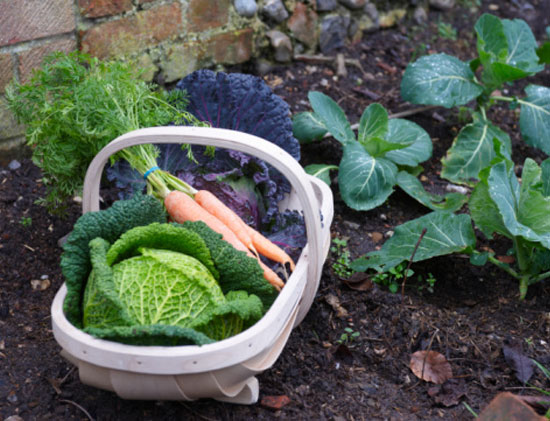In Boston and the surrounding towns, you don't have to be a farmer to grow your own food, and edible gardens provide a bounty that spreads well beyond your dinner table. Both urban and rural dwellers have discovered the joys and benefits of planting herbs, vegetables and other edibles in their gardens and patio containers. Why not make this the year of homegrown goodness at your place?

Think Simple
Your landscape design can easily incorporate an edible garden of any size, depending on the expanse of property and your family's needs. Many people choose to start off with patio pots overflowing with popular herbs (like basil, oregano and parsley) or easily contained fruits and vegetables (like strawberries or cherry tomatoes).
One tried and true rule to edible gardens should be your first consideration - plant what you will eat.
Sure, zucchinis are easy to grow, but you'll be overwhelmed and frustrated with your bounty if this fleshy gourd doesn't have a place on your menu. Start off with a small edible garden if you're just beginning to cook with fresh herbs. And be prepared to fall in love with the taste with plans to expand your gardens next year.
Consider Your Conditions
Growing herbs, fruits, vegetables and sprouts takes work. You'll need to maintain moisture levels, as well as ensure these plants are fed on a regular basis. Compost tea, fertilizer and other organics enrich the soil and produce healthier plants all season long.
Choose plants that will thrive in your soil and climate conditions. Most edibles require full sun exposure (6 to 8 hours of direct sun daily) and thrive in well-drained soil. Have your landscaping professional create raised garden beds if clay dominates your property, and consider the location of your edible garden carefully.
It's also smart to invest in a rain barrel system to aid in the watering process. Perfect for patio planters of all sizes, rain barrels and cisterns can also be used to water your vegetable garden, fruit trees and herb gardens. Ask your landscaper for design and installation advice that capitalizes on the conditions of your property.
Edible gardens deliver healthy and delicious alternatives to your dinner table. Start simple and design the garden with your property in mind to ensure sweet success this season.

 781-646-5555
781-646-5555